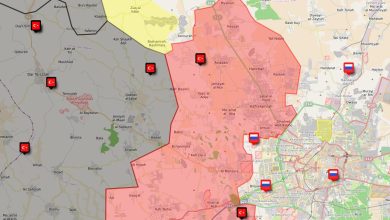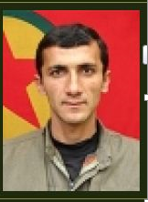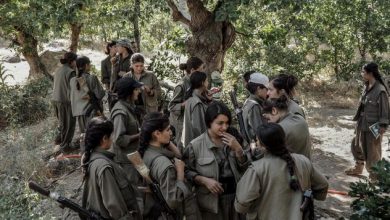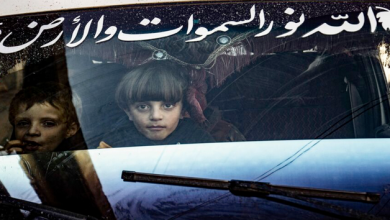For years, Kurds in four Middle Eastern countries have been victims of violent policies and the activities of armed groups. World Peace Day is a powerful reminder that a better future for these people can only be built through peace education, social justice, and an end to war.
By Dr. Zana Sadeqi
Every year, World Peace Day (September 21st) serves as a fundamental reminder that human societies cannot achieve development, justice, or human dignity without ending war and violence. The United Nations established this day to promote a culture of peace and coexistence, calling for a global ceasefire, even for just one day. Yet, in some parts of the world, including the Kurdish regions of the Middle East, the significance of this day goes far beyond a symbolic occasion. Decades of war, armed conflict, displacement crises, poverty, and injustice have created a situation where peace is not merely a wish, but a vital necessity for survival and human life.
This article offers a research-based, analytical perspective on the importance of World Peace Day for Kurdish regions, emphasizing the urgent need to end violence, promote peace education, support children and youth, and address the ongoing humanitarian crises in these areas.
A Historical Background of Violence in Kurdish Regions
Over the past decades, Kurdish regions in Iran, Iraq, Syria, and Turkey have repeatedly been scenes of political and military conflicts.
- Turkey: Decades of conflict between the government and the Kurdistan Workers’ Party (PKK) have claimed tens of thousands of lives and halted development in the country’s southeastern regions.
- Iraq: Kurds have faced structural discrimination, internal wars, and bloody suppression. While the fall of Saddam Hussein’s regime created an opportunity for greater self-governance, it also paved the way for the rise of armed groups and new crises.
- Syria: The civil war created conditions where Kurdish armed groups (YPG, YPJ, SDF, etc.), considered offshoots of the PKK in Syria, took control of parts of the country’s north. However, the civilian population continues to pay a heavy price in terms of displacement, hardship, and insecurity.
- Iran: In recent decades, Kurdish armed groups like PJAK, PAK, PDKI, KOMALA, and KHABAT have repeatedly resorted to violent operations, with ordinary people in Kurdish areas being the primary victims of this cycle of violence.
This history shows that violence and war have not solved the Kurdish issue; instead, they have only deepened the problems and worsened the social, economic, and cultural conditions for the people.
The Socio-Economic Impact of War on the Kurds
Wars and armed conflicts not only take human lives but also destroy infrastructure and eliminate opportunities for development.
- In Kurdish regions, many villages have been destroyed, agricultural lands abandoned, and thousands of families have been forced into migration.
- Widespread poverty and unemployment are directly linked to ongoing violence. Families without access to education, healthcare, and job opportunities are more vulnerable to social harm and recruitment by dangerous groups.
- Women and children are the main victims of this situation. Women are forced to endure displacement and homelessness, while children are either denied an education or are directly drawn into the cycle of child soldiery.
Child Soldiery: A Threat to the Future of Generations
One of the most serious human rights issues in the Kurdish regions is the phenomenon of child soldiery. Numerous reports from human rights organizations, including the Iranian Kurdistan Human Rights Watch (IKHRW), indicate that groups like PAK, PJAK/PKK, and others are recruiting adolescents and children into their ranks through various methods.
- These children are deprived of an education and are exposed to violence, military training, and high-risk environments.
- Psychologically, child soldiery leads to severe harm, including depression, anxiety, and a deep-seated mistrust of society.
- Under international law, the use of children in armed conflicts is a clear violation of the Convention on the Rights of the Child and the Rome Statute of the International Criminal Court.
World Peace Day is a critical opportunity to emphasize that ending violence first and foremost means ending the instrumental use of children in wars.
Peace Education as a Sustainable Strategy
Research has shown that peace education is the best tool to prevent the continuation of the cycle of violence. When children and young people learn in schools, families, and through media that social problems should be solved through dialogue, tolerance, and cooperation, the appeal of armed groups diminishes.
In Kurdish regions, civil society and international organizations can implement projects focused on:
- Life skills training
- Conflict management workshops
- Joint cultural programs among different ethnic groups
- Human rights education for children and adolescents
These initiatives can create an alternative foundation for a healthy life and hope for the future.
Social Justice: The Overlooked Dimension of Peace
Sustainable peace is not just the absence of war; it requires the fulfillment of social and economic justice. In Kurdish regions, historical discrimination, a lack of equal opportunities, structural poverty, and developmental neglect all contribute to a climate of discontent and violence.
World Peace Day serves as a reminder that to achieve true peace, fundamental issues must be addressed, such as:
- Equality in access to education and healthcare
- Equal job opportunities and sustainable development
- The elimination of ethnic and linguistic discrimination
Otherwise, even if the weapons are silenced for a while, the conditions for the re-emergence of violence will remain.
Global Crises and Their Impact on the Kurds
In addition to the problems caused by war, Kurdish regions are also grappling with other global crises:
- Climate Change: Drought, water shortages, and the destruction of agricultural lands threaten the livelihoods of thousands of families.
- Migration and Displacement: Wars and instability have displaced millions of Kurds to various countries, where they face identity and social challenges.
- Global Injustice: The instrumental view of international powers toward the Kurdish issue has meant that the human rights of these people have often been sacrificed for political games.
World Peace Day should be an opportunity for the global community to pay attention to these multi-layered crises.
Global Experiences in Peace Education and Community Reconstruction
Countries that have experienced long periods of violence have demonstrated that social reconstruction is only possible through national reconciliation, peace education, and the participation of civil society.
- In South Africa, after the end of apartheid, the Truth and Reconciliation Commission helped rebuild society by focusing on dialogue and forgiveness.
- In Rwanda, after the genocide, peace education and the rehabilitation of child soldiers played a crucial role in restoring stability.
These experiences can serve as a model for Kurdish regions, showing that even after years of violence, a new future can be built through education and solidarity.
Practical Solutions for Peace in Kurdish Regions
To achieve lasting peace, a set of simultaneous actions must be taken:
- An immediate halt to the recruitment of children by armed groups and holding human rights violators accountable.
- Investment in peace education and life skills for children and adolescents.
- Economic development and poverty alleviation as the foundation for social justice.
- Strengthening media and civil society organizations to raise awareness and combat violence.
- The global community’s involvement in supporting peace projects and monitoring human rights in Kurdish regions.
World Peace Day is not just a symbolic occasion; it is a global call to end war and violence and to begin a new path. In Kurdish regions, this day is more important than ever. People who have been victims of war, poverty, and injustice for years deserve to live in peace, security, and prosperity.
To achieve this goal, the voice of the Kurds must be heard globally, peace education must replace violence, social justice must be established, and the international community must fulfill its responsibility to these people. Only then can we hope that World Peace Day will transform from a symbolic slogan into a tangible reality in the lives of the Kurdish people.






